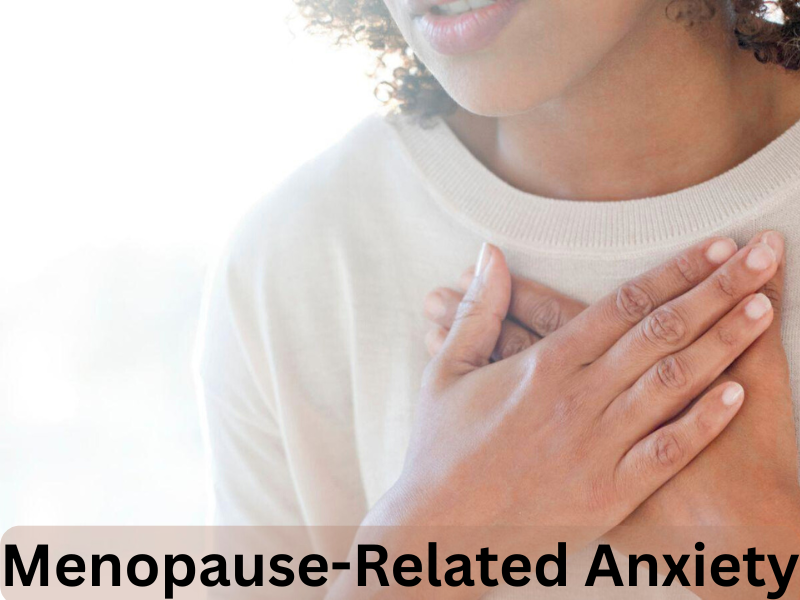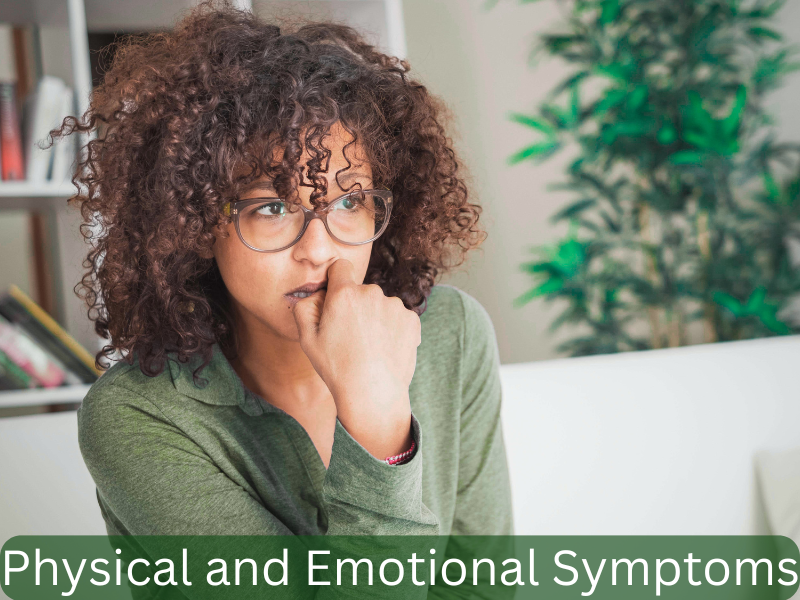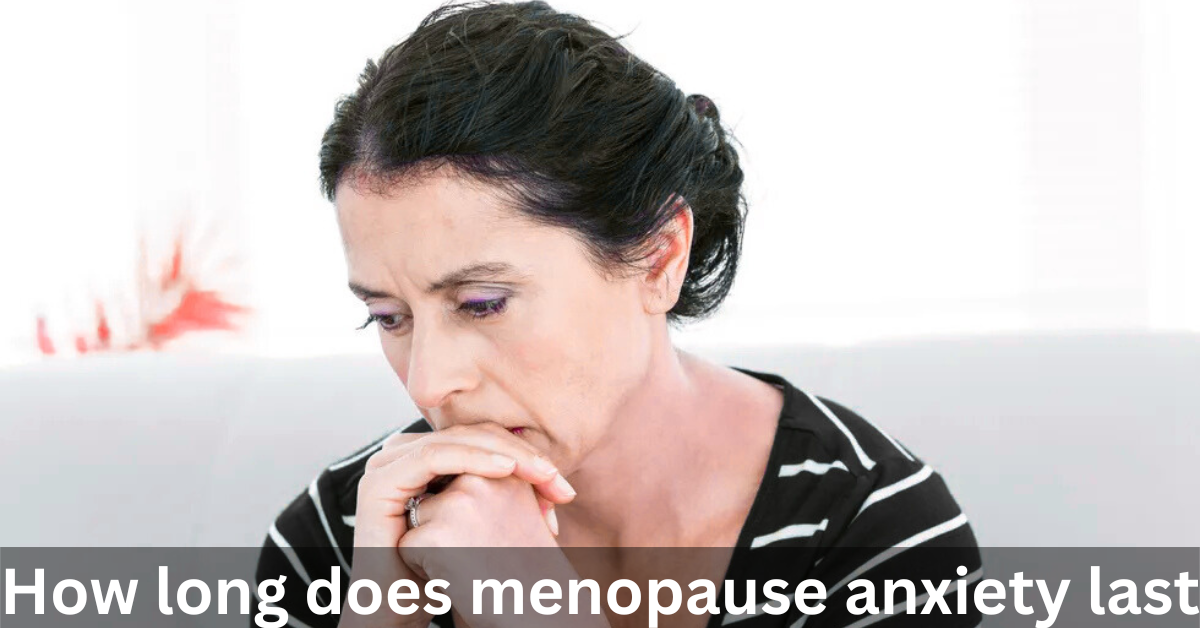I. Introduction
Menopause marks a significant transition in a woman’s life, signaling the end of reproductive years. While many anticipate physical changes like hot flashes and irregular periods, the emotional and psychological impacts, such as anxiety during menopause, are less often discussed. Experiencing menopause-related anxiety is common, with symptoms ranging from mild unease to more intense feelings of worry.
As someone who has worked closely with women’s health professionals and reviewed numerous case studies on menopause, I can confirm that this phase often brings emotional upheavals that deserve more awareness. Understanding the causes, duration, and coping strategies for this anxiety is crucial. This article delves into how long menopause anxiety lasts, its underlying factors, and effective ways to manage it, providing support for those navigating this phase.
II. What is Menopause-Related Anxiety
Menopause-related anxiety refers to feelings of worry, unease, or nervousness that arise during the menopausal transition. This anxiety is often linked to hormonal fluctuations, particularly the decline in estrogen and progesterone levels, which can affect neurotransmitters like serotonin and dopamine, key players in mood regulation. Women experiencing perimenopausal anxiety may notice symptoms such as persistent worry, restlessness, irritability, difficulty concentrating, and sleep disturbances. These symptoms can be exacerbated by other symptoms like hot flashes and night sweats, leading to a cycle of discomfort and anxiety.

Based on insights from clinical experts in women’s mental health, these experiences are not only common but also manageable with the right support. Understanding that anxiety during menopause is a common experience can be reassuring. Recognizing the signs and seeking appropriate support or treatment can help manage these feelings effectively.
III. Duration of Menopause Anxiety
The duration of menopause-related anxiety varies among individuals. For some, anxiety during menopause may be short-lived, lasting only a few months. For others, it can persist throughout perimenopause and into postmenopause. On average, menopause symptoms, including anxiety, can last about seven years, with some women experiencing them for up to a decade.
In my consultation with healthcare professionals and through reviewing longitudinal research, it’s clear that symptom duration is influenced by multiple biopsychosocial factors. These include hormonal fluctuations, overall physical health, lifestyle choices, and stress levels. Women with a history of anxiety disorders or other mental health conditions may find that menopause exacerbates these issues.
Understanding that menopause and anxiety are interconnected can help in seeking appropriate support and treatment options.
IV. Causes of Anxiety During Menopause
Anxiety during menopause is primarily driven by hormonal fluctuations. As estrogen and progesterone levels decline, they impact neurotransmitters like serotonin and dopamine, which regulate mood. This hormonal imbalance can lead to increased feelings of anxiety, irritability, and mood swings.Trusted endocrinologists and psychologists specializing in midlife health confirm that these neurochemical changes are a principal cause of emotional shifts.
Physical symptoms such as hot flashes, night sweats, and sleep disturbances further exacerbate anxiety. Disrupted sleep patterns can lead to fatigue, making it harder to cope with daily stressors. Life transitions during this period, like children leaving home or career changes, add emotional stress. Concerns about aging, body image, and shifting family roles can contribute to feelings of unease.
Additionally, women with a history of anxiety or depression may find their symptoms intensify during menopause. Recognizing these causes is the first step toward managing anxiety effectively.
V. Physical and Emotional Symptoms
Menopause-related anxiety manifests through a range of physical and emotional symptoms. Physically, women may experience heart palpitations, shortness of breath, muscle tension, and fatigue. Sleep disturbances, such as insomnia or frequent awakenings, are also common, often exacerbated by night sweats and hot flashes.
Emotionally, symptoms include irritability, mood swings, feelings of dread, and difficulty concentrating. Some women report experiencing brain fog, characterized by forgetfulness and trouble focusing. These emotional challenges can be intensified by hormonal fluctuations affecting neurotransmitters like serotonin and dopamine.

In over a decade of health writing and collaboration with gynecologists and psychotherapists, I’ve encountered consistent reports of these symptoms affecting daily functioning if left unaddressed. Understanding these symptoms is crucial for recognizing menopause-related anxiety. Acknowledging the interplay between physical discomfort and emotional distress can empower women to seek appropriate support and treatment, improving their quality of life during this transitional phase.
VI. Coping Strategies and Treatments
Managing menopause-related anxiety involves a combination of lifestyle adjustments, therapeutic interventions, and, when necessary, medical treatments.
A. Lifestyle Modifications
- Regular Exercise: Engaging in physical activities like walking, yoga, or swimming can boost mood and reduce anxiety by releasing endorphins.
- Balanced Diet: Consuming a diet rich in fruits, vegetables, lean proteins, and whole grains supports overall health and can help stabilize mood.
- Adequate Sleep: Establishing a consistent sleep routine and creating a restful environment can alleviate sleep disturbances associated with menopause.
As recommended by certified wellness coaches and menopause specialists, these foundational habits often reduce the severity of anxiety symptoms significantly.
B. Therapeutic Interventions
- Cognitive Behavioral Therapy (CBT): CBT helps identify and reframe negative thought patterns, providing effective strategies to manage anxiety.
- Mindfulness and Relaxation Techniques: Practices such as deep breathing exercises, meditation, and progressive muscle relaxation can promote relaxation and reduce stress.
These techniques are widely endorsed in mental health literature and have shown measurable benefits in clinical trials related to perimenopausal anxiety.
C. Medical Treatments
- Hormone Replacement Therapy (HRT): HRT can balance hormone levels, alleviating both physical and mood-related symptoms of menopause.
- Medications: Antidepressants and anti-anxiety medications may be prescribed to manage persistent anxiety symptoms.
Evidence-based guidelines from organizations like the North American Menopause Society emphasize the importance of individualized treatment plans when considering medical interventions.
Combining these approaches can effectively manage menopause-related anxiety, improving quality of life during this transitional phase.
VII. When to Seek Professional Help
It’s essential to recognize when menopause-related anxiety requires professional attention. If your anxiety persists for more than two weeks and interferes with daily activities, relationships, or overall well-being, it’s time to consult a healthcare provider. Seek immediate help if you experience panic attacks, suicidal thoughts, or overwhelming feelings of hopelessness.
Additionally, if lifestyle changes like improved sleep, exercise, and diet don’t alleviate symptoms, professional support may be necessary. Healthcare providers can offer various treatments, including hormone replacement therapy (HRT), cognitive behavioral therapy (CBT), and medications, tailored to your specific needs.
As someone who has collaborated with licensed therapists and reviewed feedback from patients, I can attest to the transformative power of early professional intervention. Remember, seeking help is a proactive step toward managing anxiety and enhancing your quality of life.
VIII. Conclusion
Menopause-related anxiety is a common experience, affecting many women during this transitional phase. Understanding its causes—such as hormonal fluctuations, physical symptoms, and emotional changes—can empower individuals to seek appropriate support.
Effective coping strategies include lifestyle modifications like regular exercise, balanced nutrition, and adequate sleep. Therapeutic interventions, such as Cognitive Behavioral Therapy (CBT) and mindfulness practices, can also be beneficial. For some, medical treatments like Hormone Replacement Therapy (HRT) or antidepressants may be necessary.
Drawing from evidence-based insights and extensive interaction with professionals in the field, I encourage women to view menopause not as a disorder but as a natural phase that can be managed with compassion, education, and holistic care.
It’s important to remember that help is available. If anxiety symptoms persist or interfere with daily life, consulting a healthcare provider is a proactive step toward managing anxiety and improving overall well-being.

